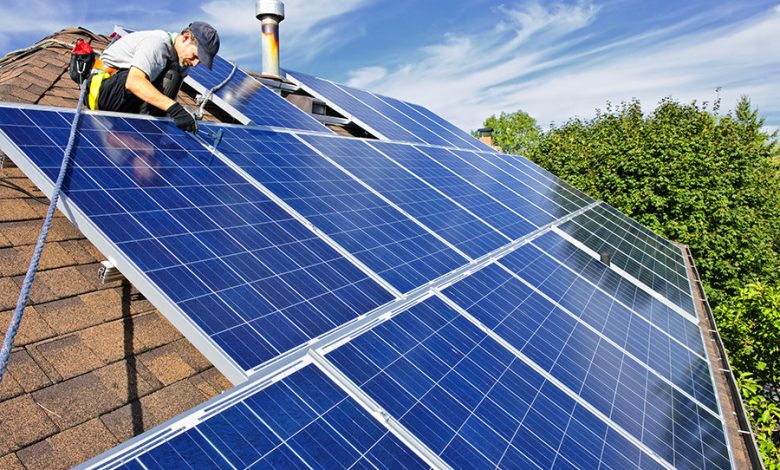Tips For Maintaining Your Solar Battery For Long-Lasting Performance

If you want your solar battery to be reliable and provide you with backup for a long time to come, making sure your battery stays reliable, maintaining your battery is a non-negotiable issue. This is because neglecting your solar battery can cause a number of problems, such as capacity loss, reduced backup time, or early failure.
This is why in this article, we’ll give you actionable advice on how you can maintain your solar battery so that it provides better performance and longevity.
Understanding Solar Battery Types and Their Needs
There are different types of Solar batteries available in the market. Each type of battery has different needs and hence different ways of handling. The types of solar battery available in the market are:
- Flooded lead-acid
- Sealed (AGM/Gel)
- Lithium-ion.
So, before you decide on a care routine, the first thing you need to do is understand what type of solar battery you have.
Core Solar Battery Maintenance Practices
Now, before we move further, let’s go over the fact that the core solar battery maintenance practices are. This is because these practices are the core of all types of batteries. So keeping them in hand helps a lot. The table below explains it to make it even easier. It also mentions how often you should do them, so that you understand it better.
| Maintenance Task | Purpose | Recommended Frequency |
| Cleaning terminals | Prevent corrosion and voltage drop | Monthly |
| Checking electrolyte levels (flooded) | Maintain chemical balance and prevent sulfation | Monthly |
| Monitoring charge cycles | Avoid deep discharge and overcharge | Weekly |
| Temperature regulation | Extend battery life and prevent thermal stress | Continuous |
Seasonal and Environmental Adjustments
So, you’ve got the nutshell of what you need to do to keep your battery healthy. But there are some adjustments in this routine which you have to make based on the season as well. This is because metals, acids and all other components of a battery change their properties based on seasons. This can affect the batteries’ performance and longevity.
| Season | Key Focus | Recommended Practices | Why It Matters |
| Summer | Ventilation and Heat Control | Ensure proper airflow around batteries.Avoid placing units in direct sunlight.Install cooling fans or vents in enclosed spaces. | Prevents overheating, which can reduce battery capacity and accelerate wear. |
| Winter | Insulation and Charge Monitoring | Keep batteries in insulated enclosures to maintain a stable temperature.Check charge levels more frequently as efficiency drops in cold weather.Avoid full discharges during extended cloudy periods. | Maintains performance and prevents freezing or undercharging in low temperatures. |
| Monsoon | Moisture Protection and Secure Enclosures | Elevate batteries to avoid water contact.Seal enclosures to prevent moisture ingress.Inspect for leaks or rust regularly. | Protects against short circuits, corrosion, and damage from humidity or flooding. |
The Importance of Monitoring and Inspections
Maintenance and monitoring are co-existing allies; you cannot possibly maintain your battery without monitoring it constantly. Now, it doesn’t mean you’re going to sit 24*7 in front of your battery; instead, use battery management systems, system monitors, apps, etc, which will update you about the status of your solar battery 24*7 from the convenience of your phone.
Also, a pro tip is to get an annual inspection every single year. This would detect any underlying issues that you have missed and allow you to fix them without any worry. This would allow you to check the performance so that you can optimise it beforehand.
Safety and Handling Best Practices
Now, there are some best practices when it comes to safety and handling. The table below will explain it for better understanding.
| Safety Tip | What You Should Do | Why It Matters |
| Turn Off Power Before Maintenance | Before you clean your inverter or check it in any way, always remember to turn the inverter off and disconnect the battery first. | It shields you against electric shocks and short circuits caused inadvertently. |
| Use Safety Gear | Always wear gloves and safety glasses should be used when handling batteries or electrolytes. | Guard your hands and eyes against any back-splashes or leaks from the acid. |
| Keep Batteries in a Dry, Airy Place | Keep them away from sunlight, water and confined spaces. And be sure they’re getting enough airflow around them. | Helps prevent the system from overheating, prevents rust & corrosion and helps seal air out of the system to make it even more safe. |
| Be Careful with Battery Water or Acid | Use only distilled water for flooded batteries and extreme caution in handling acid. Wipe up any spills immediately. | Chemical burns as well as battery damage are precluded. |
Common Mistakes to Avoid
So, there are some common mistakes that you need to avoid while handling the inverter battery.
| Common Mistake | Why It’s a Problem |
| Overcharging or Frequent Deep Discharges | Leads to faster battery wear, reduced capacity, and shorter overall lifespan. |
| Ignoring Corrosion or Loose Terminals | Causes poor electrical connections, power loss, and potential safety hazards. |
| Skipping Seasonal Adjustments | Results in inefficient charging or overheating due to changing temperature and daylight conditions. |
| Using Tap Water in Flooded Batteries | Introduces minerals and impurities that damage battery plates and reduce performance. |
Conclusion
With these guidelines, maintaining your Solar battery is quite simple. Keeping these tips and mistakes in mind would help you make smarter decisions. Putting money into solar battery storage is a great way to make energy use more efficient and reliable.
The initial cost may seem high, but if you follow the best practices in this guide and keep up with maintenance, you might save a lot of in the long run. You can get the most out of your investment and enjoy the benefits of a more reliable energy system by making your solar battery last longer.





